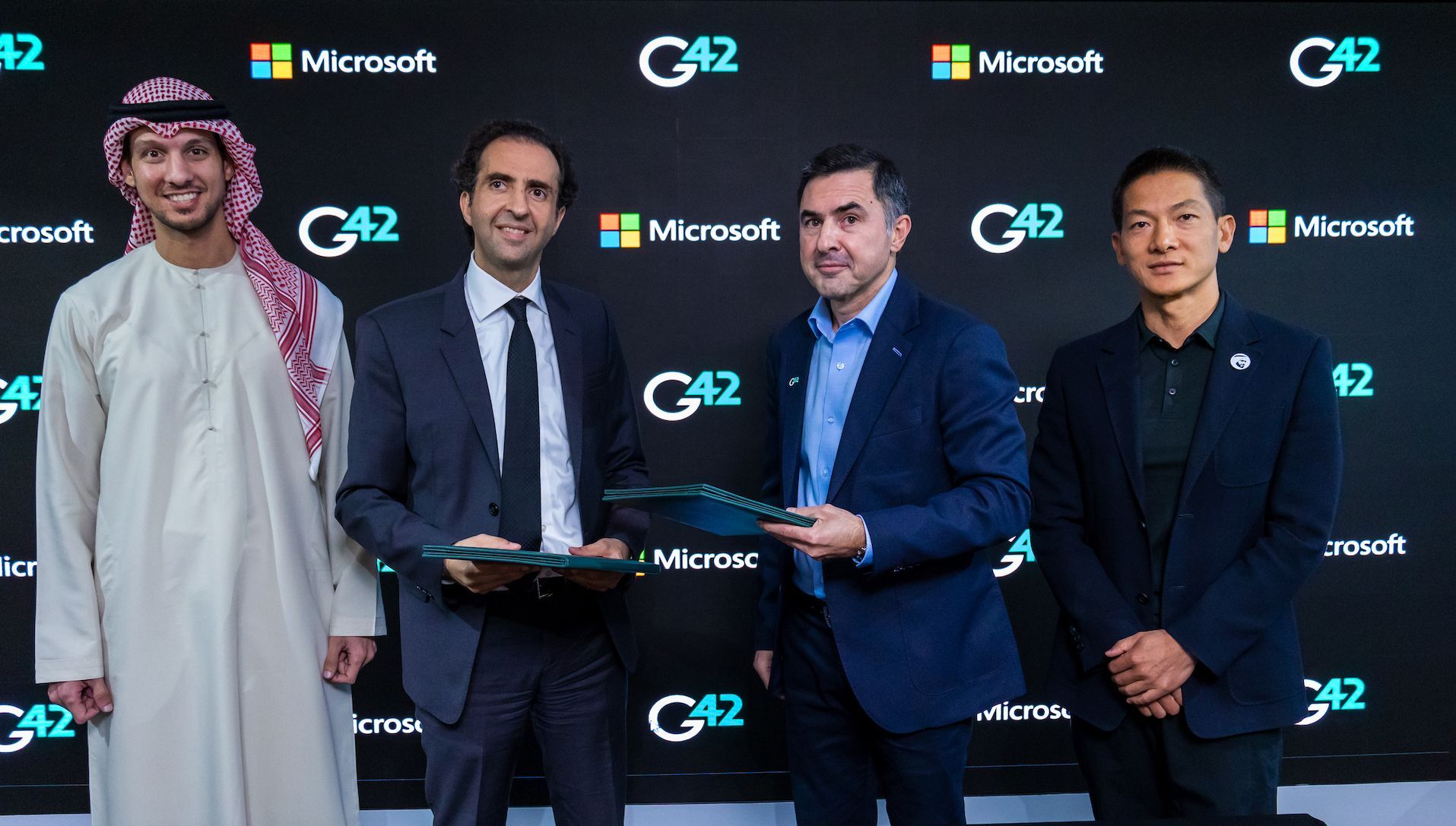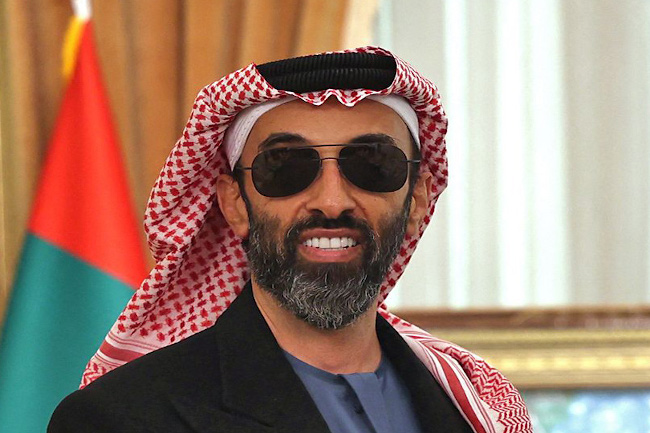In a significant development in the world of technology and geopolitics, the United States government has approved the export of advanced artificial intelligence (AI) chips to a Microsoft-operated facility in the United Arab Emirates (UAE). This decision comes as part of a high-profile partnership between Microsoft and G42, a leading Emirati AI firm. While the deal marks a major step forward in the global AI race, it has also ignited a flurry of concerns and scrutiny, particularly from U.S. lawmakers. This approval highlights the growing intersection of technological innovation, international relations, and national security concerns, with the potential to reshape the future of AI development across the globe.
Here's ads banner inside a post

The Deal Between Microsoft and G42
The partnership between Microsoft and G42 has been in the works for some time. In 2024, Microsoft made a landmark investment of $1.5 billion in G42, acquiring a minority stake in the company and securing a seat on its board of directors. This investment underscores Microsoft’s strategic intent to deepen its involvement in the rapidly evolving AI landscape, particularly in the Middle East, a region that has emerged as a key player in global technological development.

Here's ads banner inside a post
As part of this deal, G42 will leverage Microsoft’s cloud services to power its AI applications, creating a synergy between the two companies that blends cutting-edge software with G42’s advanced AI research. This partnership is seen as a crucial step in enhancing AI capabilities, not only in the UAE but also in the broader Middle Eastern region, where the UAE has positioned itself as a leader in technology and innovation.
Scrutiny Over National Security Concerns
While the deal may appear promising on the surface, it has not been without controversy. The involvement of G42, a company with ties to the UAE’s ruling family and its national security apparatus, has raised alarms among U.S. lawmakers and officials. The primary concern is that G42 could potentially transfer sensitive U.S. AI technology to China, a nation with which the United States is in ongoing competition for global technological dominance.
G42’s leadership is closely connected to the UAE’s ruling elite, with its chairman, Sheikh Tahnoon bin Zayed Al Nahyan, also serving as the UAE’s national security advisor and the brother of the UAE’s president. This close connection to the country’s leadership has led to concerns that the company could be used as a conduit for sensitive technologies that might ultimately end up in the hands of the Chinese government or its military.
Here's ads banner inside a post

In response to these concerns, U.S. lawmakers called for a thorough investigation into G42’s ties to China. They specifically requested that the U.S. government assess any potential links between the company and the Chinese Communist Party, as well as its involvement with Chinese military and government entities. This scrutiny is part of a broader effort by the Biden administration to safeguard U.S. technological supremacy and prevent any potential security risks associated with the transfer of advanced AI systems.

The U.S. Government’s Response
Amid this growing concern, the U.S. government has taken steps to ensure that the export of advanced AI chips to the UAE is carefully regulated. The export license granted to Microsoft includes strict conditions designed to mitigate the risks associated with the transfer of sensitive technologies. One key provision is that Microsoft must prevent any personnel from countries under U.S. arms embargoes, or those on the U.S. Bureau of Industry and Security’s Entity List, from accessing its facility in the UAE. This includes individuals from China, its government, and any organizations headquartered in the country.
These restrictions are intended to prevent the technology from being misused or falling into the wrong hands, ensuring that the AI systems developed at the UAE facility will not be employed for purposes that could undermine U.S. national security. Furthermore, the U.S. has made it clear that AI systems could pose significant risks if they are misused, particularly in the fields of chemical, biological, and nuclear weapons development. As such, the Biden administration has introduced measures requiring the creators of large AI systems to provide detailed information about their technologies to the U.S. government.
G42’s Efforts to Address Concerns
In light of these concerns, G42 has worked to assure its partners and international observers that it is fully committed to adhering to global standards for AI development and deployment. Earlier this year, the company emphasized that it was actively collaborating with both U.S. partners and the UAE government to ensure compliance with AI-related regulations and ethical guidelines. This effort is particularly crucial given the intense scrutiny the company faces due to its ties to the UAE’s ruling family and its role in the region’s national security landscape.

Moreover, G42’s close working relationship with U.S. firms like Microsoft highlights the company’s desire to establish itself as a responsible player in the global AI ecosystem. G42 has been keen to demonstrate that it is not a proxy for Chinese interests but rather an independent entity striving to advance AI research and applications in a manner that aligns with international norms and regulations.
The Geopolitical Implications of AI Export Control
The approval of the export license for Microsoft’s AI chips to the UAE represents a broader trend of increased scrutiny over AI technologies, particularly those with military and national security implications. The U.S. government has made it clear that it views AI as a critical strategic asset that must be carefully protected from falling into the wrong hands. The potential for AI to be used in the development of weapons of mass destruction has only heightened concerns about the global arms race in AI technology.

At the same time, the growing importance of AI in fields like healthcare, finance, and energy means that countries and companies around the world are racing to develop the most advanced AI systems. This creates a delicate balancing act for governments, which must weigh the benefits of technological collaboration and innovation against the need to safeguard national security and maintain a competitive edge in the global economy.
For Microsoft, the UAE deal represents a major opportunity to expand its footprint in the Middle East, a region that is increasingly becoming a hub for technological innovation. By partnering with G42, Microsoft is positioning itself at the forefront of AI research and development in the region, while also gaining access to a wealth of new markets and opportunities for growth. However, this move also exposes Microsoft to a degree of risk, as it must navigate the complex geopolitical landscape and address the concerns of lawmakers and regulators.
The Future of AI in the UAE and Beyond
Looking ahead, the UAE is likely to continue its push to become a global leader in AI technology, with G42 playing a central role in this ambition. The country’s leadership has already made significant investments in AI research and development, recognizing the transformative potential of these technologies. The partnership with Microsoft is just one example of how the UAE is positioning itself as a key player in the AI race.
However, the geopolitical challenges surrounding AI export controls are unlikely to dissipate anytime soon. As AI technologies become more powerful and pervasive, countries around the world will need to find ways to balance innovation with security. The U.S. will continue to closely monitor AI developments, ensuring that its technological edge is not compromised by the actions of other nations or companies.

In conclusion, the approval of advanced AI chip exports to the UAE under Microsoft’s deal with G42 represents a major milestone in the global AI landscape. While the deal offers significant opportunities for technological advancement and economic growth, it also raises critical questions about national security, geopolitical competition, and the responsible development of AI technologies. As the world moves closer to a future dominated by artificial intelligence, the ability to navigate these complex challenges will be key to shaping the future of technology and international relations.


